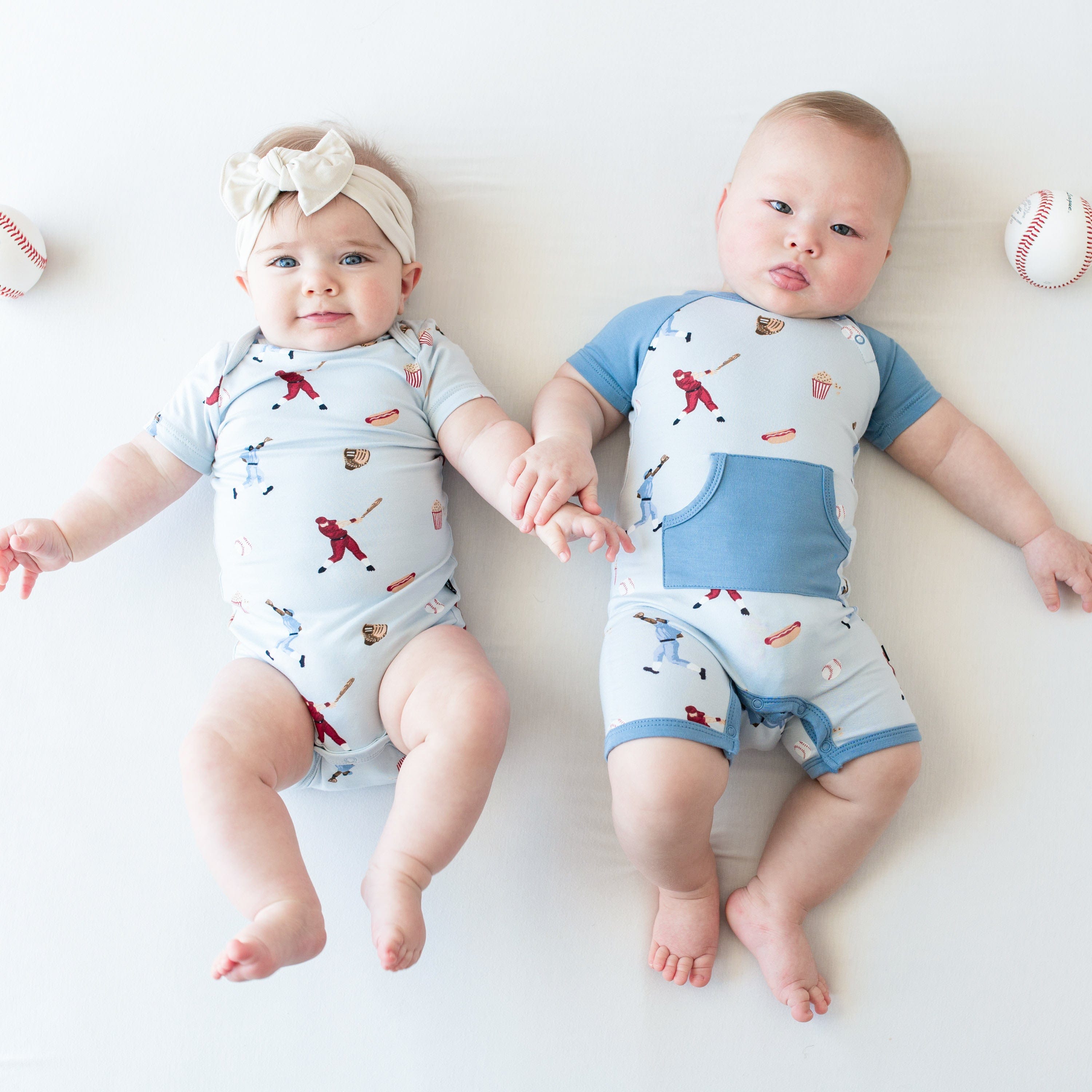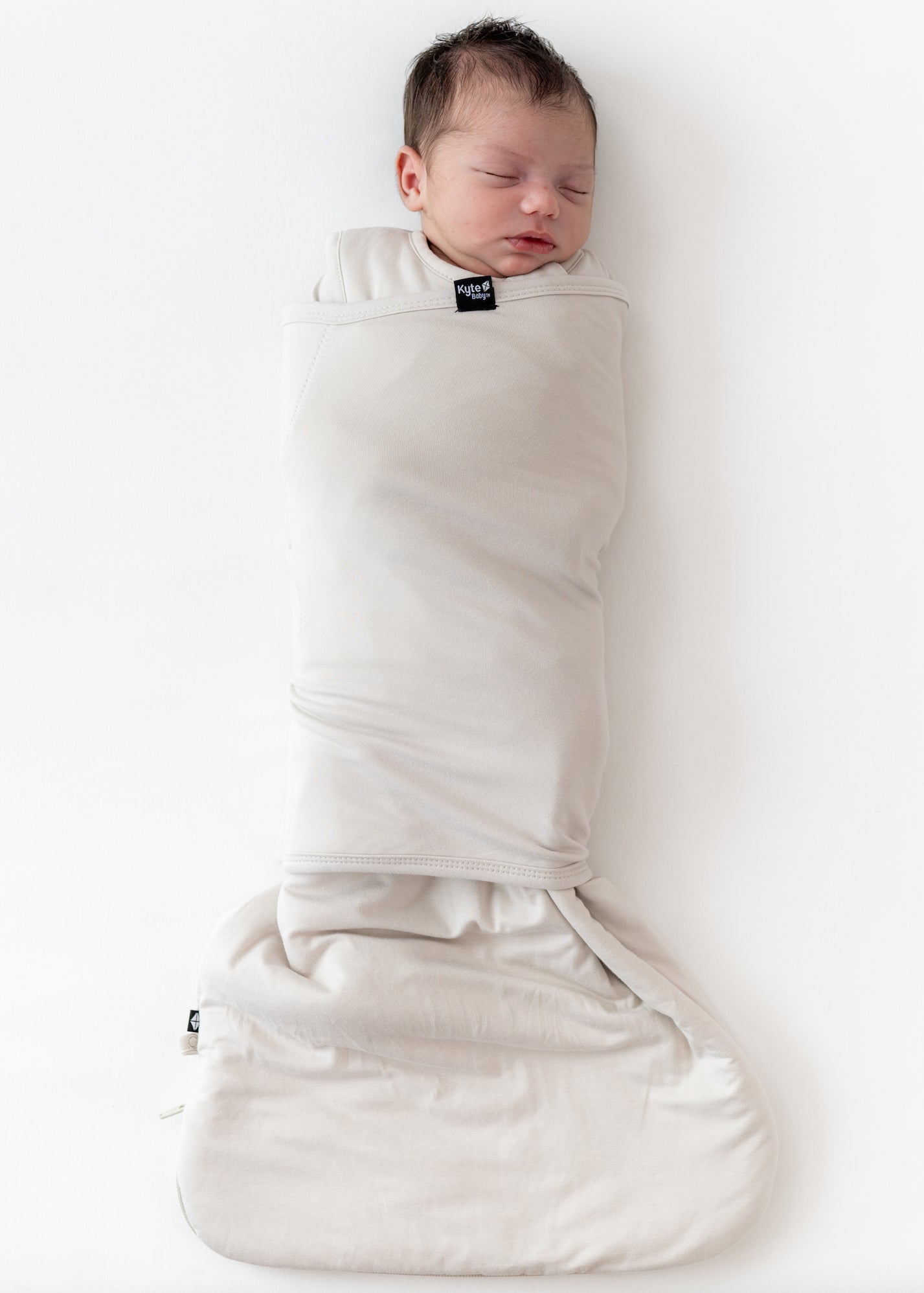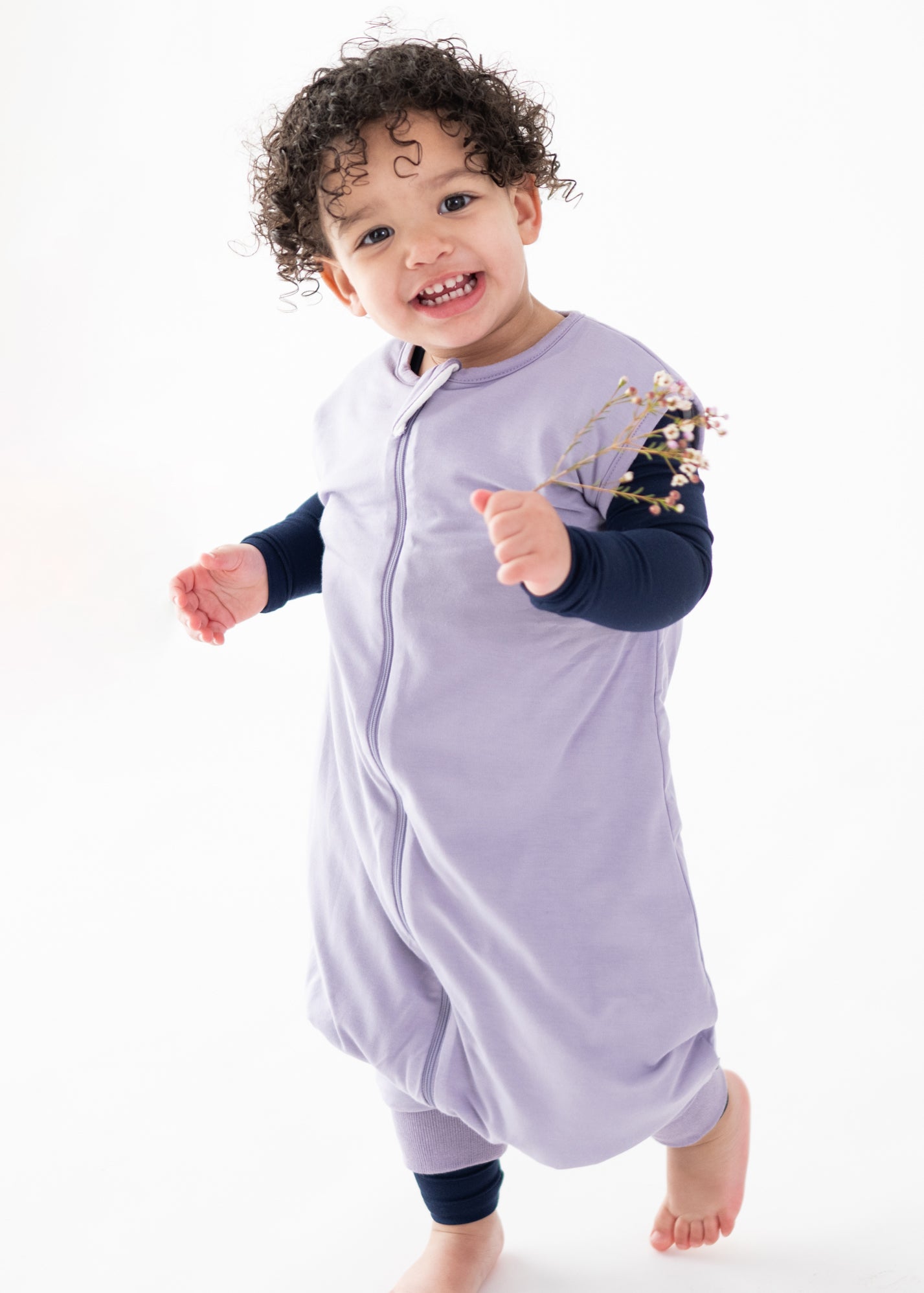
It can be overwhelming for parents when our babies go from cool, calm, and collected to fussing, crying, and/or screaming. That will trigger anyone!
There are lots of reasons this could happen, first and foremost because they’re babies who have emotions and can be set off by a myriad of things. They are easily overstimulated and even if it seems like they are handling it well in the moment, it can catch up when they become overtired.
Sometimes it is easy to calm them down and other times it can feel like nothing works! It may even drive you to tears (and that’s okay too-- crying is healthy believe it or not).
We will cover all the reasons your baby might be fussy or upset as well as ways to help soothe them!

Why is my baby crying?
Before we can help our fussy baby settle, we have to figure out what’s causing them to be upset!
- Is baby colicky, going through a witching hour, or the period of purple crying?
- Do they have a wet or dirty diaper (or a diaper rash?)
- Are they hungry or tired? Make sure you check out this blog for baby tired signs and this one for responsive feeding!
- In that same vein, is baby overeating? That can cause tummy issues since tired signs and hunger signs can often be confused!
- Is baby coming down with an illness, like an ear infection? Make sure to rule out fever and diarrhea!
- Does baby have a hair tourniquet?
- Does baby have a food sensitivity or allergy like a cows milk protein allergy?
- Does baby need to burp or pass gas?
- Is baby too cold or too hot?
If you have found a cause to the crying then you can take actionable steps to helping them settle!

Soothing ideas for a fussy baby
You can start with the 5 S’s from Dr. Harvey Karp to settle your little one. While they can work well individually, when you combine all the “S’s”, it is shown to initiate a calming reflex, especially for newborns in that fourth trimester.
- Swaddle your baby up! Swaddling has shown to decrease anxiety in babies.
- Sucking reflex; encourage this with a pacifier or breastfeeding. Nonnutritive sucking is very soothing to little ones and can help if they can find their hands when they’re a little older! (You can introduce a pacifier early on, there is little to no evidence of nipple confusion with pacifiers.)
- “Shhing” or using loud white noise as this mimics the womb environment and is very calming to little ones.
- Swing or rock your little one; Dr. Karp suggests big movements and gradually reduce as baby calms.
- Stomach or side position-- Dr. Karp recommends using a football type hold to mimic their position in the womb but remember this is only while being held! Babies should be laid on their back for sleep and on their tummy when you’re supervising during awake time!
You can see him in action doing the 5 S’s in this video.
Other options for soothing a crying baby are:
-
Baby wearing
-
Rocking or bouncing on a yoga ball in a dark room
-
Singing a song
-
Draw a warm bath or even jump in the shower with them
-
Infant massage
-
Get outside
-
Change the scenery by taking them to a different room of the house
-
Chiropractic care
If it’s determined that baby has a food sensitivity with breastfeeding, then you can start to keep a log to track foods you’ve eaten and how baby reacts that day. By doing this, you can start to pinpoint if your child is affected by anything that you’ve eaten. Sometimes they’re sensitive to things like caffeine! Avoiding spicy or gassy foods like onions or cabbage has worked for some moms, but this has not been scientifically proven.
It can be stressful to keep a log of these things, but I’m all about objectively looking at data to find a trend.

If you are formula feeding, then your pediatrician may suggest using a formula that is safe for babies with a cow's milk protein intolerance or allergy. This can usually be diagnosed with a stool sample or even by observation (bloody/mucousy stools can be a sign).
Is there a best formula for a gassy baby? Not necessarily-- that’s why there are so many to choose from! But a pro tip would be to pre-mix formula bottles so that all the little bubbles settle out of the formula and that can help ease gas symptoms!
Why is my baby fussy at night? This could be because they were awake too long during the day or before bed. Check out this blog about baby sleep schedules to help! It could also be because they have their days and nights confused.

Fun fact: babies do not produce melatonin early on because they have an underdeveloped pineal gland. This means they have an abundance of serotonin in their gut which can cause intestinal cramps. This is why babies are often fussier in the night than during the day!
Gripe water vs gas drops: what’s the difference?
Gripe water is an alternative medicine that some people use to try to reduce a baby’s colic symptoms. The liquid is a mixture of water and herbs, which can vary based on the manufacturer. However, two common components are dill seed oil and sodium bicarbonate. Many years ago, some manufacturers added sugars or alcohol to gripe water.
The purpose is to soothe their tummy so they’re more comfortable and cry less. However, there are side effects if given too much. The sodium bicarbonate content can cause alkalosis where it throws off their PH levels. It can also grow bacteria or fungi if it’s improperly stored.
Gas drops are a medical treatment. Their chief active ingredient is simethicone, an ingredient that breaks up gas bubbles in the stomach. This makes gas easier to pass. The drops can be mixed in water, formula, or breast milk and given to baby.
Gas drops are generally considered safe for use in babies unless a baby is being given thyroid hormone medications. Thyroid medications can adversely interact with gas drops.
Choosing between gripe water and gas drops can be difficult because neither treatment has been proven to treat colic. Also, introducing any new medication to your baby could cause an allergic reaction.
It can be very baby-specific if a little one’s colic will get better with gripe water or gas drops.
One way to determine what may help most is to think about baby’s colic symptoms. If your baby’s stomach seems firm and they constantly draw their legs toward their stomach to relieve built-up gas, then gas drops may be a better option. If your baby seems to respond more to soothing techniques, gripe water may be the preferred treatment choice. However, there is no evidence that one or the other will work in either case.

How to tell if baby has gas? Typically, you won’t know until after the fact if that’s what bothering them! And by that I mean, when they pass it and they’re happy… then gas was likely causing the discomfort.
Infant massage done regularly throughout the day can greatly reduce discomfort from gas as well as adequate tummy time. That strengthens their core muscles in order to coordinate passing gas.
What to do to calm yourself when baby is crying
It is so important to keep ourselves regulated and calm when baby is crying. They have mirror neurons so whatever emotion we are feeling, they will feel! If you’re dealing with a colicky baby, it’s okay to comfort them while wearing ear plugs or your headphones. This allows you to stay calm and regulated to better support your baby. The crying for hours on end at the end of the day can be triggering for any parent. No judgement whatsoever!
Other actionable steps you can take to calm yourself:
-
Take a deep breath and count to 10.
-
Place your baby in a safe place, such as crib or playpen without blankets and stuffed animals; leave the room for a few minutes or trade with your partner.
-
While your baby is in a safe place, consider some actions that may help calm you down like grounding, going outside for fresh air, take a shower, etc.
-
Listen to music for a few minutes.
-
Call a friend or family member for emotional support.
-
Do simple household chores, such as vacuuming or washing the dishes.
-
If you have not calmed after 10 to 15 minutes, check on your baby and try to soothe again.
-
Try babywearing.
-
Call your child's doctor. There may be a medical reason why your baby is crying.
-
Try to be patient. Keeping your baby safe is the most important thing you can do. It is normal to feel upset, frustrated, or even angry, but it is important to keep your behavior under control. Remember, it is never safe to shake, throw, hit, slam, or jerk any child—and it never solves the problem!
It can be so hard to have a fussy baby, but remember it won’t last forever. You’re doing a great job!
AUTHOR:
Ashley Olson is a certified pediatric sleep consultant, owner of Heaven Sent Sleep, and passionate about helping new parents, experienced parents, desperate and sleep deprived parents form healthy sleep habits for their children.
She has over 3 years of experience in working with families and has completed over 150 hours of coursework plus continuing education related to infant and toddler sleep. The focus of her work is on fostering a routine that grows your bond with your child while improving their sleep habits. She specializes in custom sleep plans and one on one support in changing sleep practices!






















